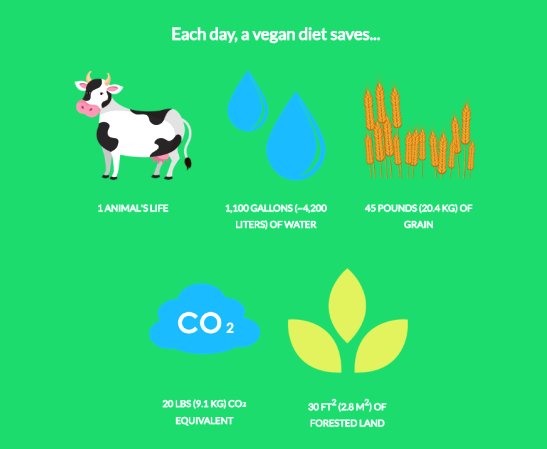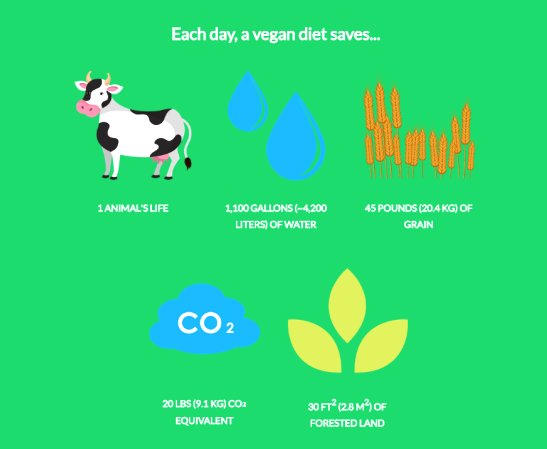Veganism has seen unprecedented popularity over recent years and no longer remains just a fringe movement. More individuals than ever before are making the switch to plant-based eating for good reason: its benefits go far beyond mere personal health considerations or ethical concerns, having a significant positive effect on our planet as a whole.
Today's ever-evolving social climate, marked by climate change and its associated ecosystem disruptions, makes a vegan lifestyle one of the most viable ways to reduce our individual and collective carbon footprints, protect natural resources and preserve global ecology. But, what would happen if veganism became mainstream worldwide?
Imagine for a moment eliminating all animal products from our diets globally - an imagined world where all citizens were vegan - and seeing what would happen. Would our society become more sustainable or could this lead to even greater challenges?
In this intriguing blog post, we will delve deeply into this complex subject matter, discussing its numerous environmental and animal welfare effects as well as challenges associated with becoming vegan in an entirely vegan world. So join us as we uncover what the consequences could be from an assumed transition towards veganism; let's imagine all of its possibilities together and anticipate their outcomes!
I. Environmental Impact of Veganism
Veganism's environmental impacts are highly complex and multifaceted, necessitating an in-depth understanding of all of its interconnections. Animal product production has been associated with significant greenhouse gas emissions and deforestation rates; these emissions can be traced directly back to meat, dairy and egg production which require enormous land, water and energy resources for production - these requirements were identified by FAO studies as contributing 14.5% of total emissions - more than twice what is contributed by transportation sector emissions alone!
Deforestation
Deforestation is another serious risk associated with animal agriculture that should not be ignored. With rapidly rising demand for meat and dairy products worldwide, it is leading to widespread deforestation activities. Land clearance necessary for livestock grazing or growing feed crops results in ecosystem loss as grazers graze crops on cleared areas; burning trees releases carbon dioxide into the atmosphere which hastens climate change; one study indicated animal agriculture caused up to 91% of deforestation within Amazon rainforest alone!
If everyone adopted a vegan diet, we wouldn't need land for animal farming and this change would significantly decrease deforestation rates and climate change impacts. Furthermore, vegetarianism requires much less water than meat-heavy diets (it takes 1,800 gallons to produce 1 pound of beef vs only 150 for lentils!). Adopting such an eating pattern would massively conserve limited freshwater resources dramatically.
Energy Consumption
May we also consider the substantial energy consumed for production, transport and refrigeration of animal products. Should veganism become mainstream worldwide, these resources would no longer be required, leading to significant positive environmental benefits. Using antibiotics in livestock production to promote growth is also the cause of antibiotic-resistant bacteria emerging, creating significant public health challenges.
By cutting animal agriculture out, we can significantly lower our carbon footprint; preserve natural resources while creating a healthier environment. Veganism's many benefits have an immense positive effect on every aspect of global ecosystems; adopting it may put sustainable future in reach by mitigating climate change impact while supporting efforts towards greener future.
Learn more at Treehugger.II. Environmental Impact of Veganism
Veganism presents us with both benefits and challenges; its advent presents us with both opportunities. However, veganism presents its own unique set of issues, most notably with regards to nutritional needs: the range of plant-based foods necessary to address potential nutrient gaps represents one major hurdle; thus necessitating great care in meeting all body nutrient requirements, particularly proteins, iron, calcium and B12. These elements may prove especially challenging.
Food waste becomes an enormous issue for vegans due to relying on fresh produce that rots easily if improperly stored, necessitating new and innovative solutions to ensure every individual can access healthy, fresh meals - such as local farming or urban gardening practices with better storage and distribution systems.
Cultural perceptions about animal products are deeply-held traditions in many societies and cultures, so when everyone becomes vegan it becomes our responsibility to find new ways of uniting as one rather than becoming divided in our search for our cultural roots at the expense of sustainability. Although this challenge will certainly present us with challenges it should not stop us from striving towards more eco-friendly future.
Veganism can be seen as both positive and negative. Nutritional requirements and food wastage issues can both pose significant challenges, and as individuals we must find ways to overcome antiquated cultural attitudes towards animal products while employing more eco-friendly agricultural practices if we want to create a world that supports both our dietary and environmental needs. Only then will we ensure a sustainable future for ourselves and future generations.
III. Challenges of a Vegan World
Veganism brings with it many positive and remarkable advantages, the greatest being a significant reduction in animal exploitation and cruelty. Animal agriculture practices account for much of this suffering; billions of animals raised for human consumption annually are raised and slaughtered under inhumane living conditions that often are cramped and unsanitary, as their deaths can often be painfully and tragic.
By decreasing our dependence on animal products for sustenance, livestock numbers would begin to diminish until their number corresponded with demand for meat and milk production – thus helping decrease overcrowding of factory farms and improving animal welfare globally.
Moving towards a world that rejects animal exploitation would have many positive ramifications for human health and well-being, too. Research has demonstrated the many health advantages associated with vegetarianism or veganism: decreased rates of heart disease, obesity and certain forms of cancer among other benefits; plus it would cut economic costs associated with chronic illnesses.
However, shifting towards an animal-free world does not come without its challenges and obstacles. Certain communities and cultures still rely heavily on animal products for subsistence purposes and an abrupt reduction could have significant economic and social ramifications for them; therefore it is vital that we find effective means of supporting and transitioning them towards more ethical practices and sustainable ways of living.
As stated previously, one of the key benefits associated with becoming vegan is reduced animal exploitation and cruelty. By cutting back on animal agriculture production methods, animal suffering will decrease while improving human health conditions simultaneously. While transitioning towards an ethically responsible world may bring its own set of challenges, transforming to an ethical lifestyle will ensure we create a brighter, sustainable, more equitable future for ourselves all.
Learn more at Saint Luke's about the Challenges of a Vegan World.IV. Animal Welfare Implications
Reimagining cultural staples for a world without animal products presents a formidable challenge. Many customs and traditions that depend on animal-derived foods are sacred, becoming integral parts of cultural identities and identities. Simply the suggestion that any of those foods could become unavailable could cause great discomfort among many individuals.
But adopting a vegan lifestyle doesn't have to mean abandoning one's cultural heritage or traditional recipes and dishes; there are numerous methods for incorporating plant-based alternatives into culturally significant food that add an air of celebration and diversity without using animal products as ingredients. Chana Masala, for instance, is naturally vegan dish which serves as an effective way of adding plant-based nutrition into one's daily dietary regime.
Veganism's increasing popularity has also spurred a culinary renaissance, prompting leading chefs and restaurants around the world to incorporate vegan cuisine into their menus. Now more than ever before, plant-based alternatives exist for everything from burgers and sausages to cheese and ice cream - as society gradually adopts plant-based eating regimens, expect even greater creativity in food innovation!
Education and outreach are excellent methods of transitioning towards a plant-based diet. By communicating the environmental and health advantages associated with veganism as well as providing information and resources about plant-based alternatives, we can make veganism more accessible and appealing to a larger segment of society.
Reimagining cultural staples and traditions within a vegan world presents both an immense challenge, but also offers unparalleled opportunities for creative ingenuity, diversity, and innovation. By adopting plant-based alternatives while championing education and outreach activities we can transform the planet into an eco-friendly habitat - though transitioning may require considerable time and dedication it represents an attainable goal that deserves our dedication.
Conclusion
Assuming and exploring a vegan world may appear unrealistic or fantastical; yet upon further reflection it becomes clear that its implications warrant extensive examination and consideration. Although implementing such radical change would present numerous obstacles to overcome, its tangible advantages of more eco-friendly and humane food systems as well as encouraging healthier lifestyles makes the concept alluring and worthwhile pursuing.
Attaining a more sustainable and compassionate future requires challenging the current status quo. Step one is reducing environmental impact; one effective means is adopting a plant-based diet as part of our lifestyles - whether this means going vegetarian entirely or gradually adding more vegetarian-based food into one's diet - any step taken toward supporting a more sustainable world will count towards its achievement.
Pushing boundaries requires us to question, explore and examine concepts beyond their initial surface level. So let us continue exploring the possibility of a vegan world with astute curiosity and intense analysis - maybe one day what seems like just an abstract thought experiment will become reality; one where humanity unites for an eco-friendly and compassionate Earth that fosters healthier communities worldwide.




